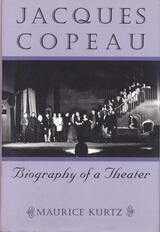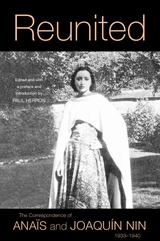
The French writer, editor, and drama critic Jacques Copeau (1879–1949) opened his Théâtre du Vieux-Colombier in Paris in 1913. Copeau was well on his way to exerting a major influence in the theater in the year that saw the end of the career of the dominant innovator of an earlier generation, André Antoine, whose Théâtre Libre (Free Stage) had featured an uncompromising realism.
In marked contrast to Antoine, Copeau returned the poetry and freshness to Shakespeare and Moliére. By May 1914, Paris and Europe had recognized his genius and his special gift to the theater. Yet like Antoine, Copeau wanted to sweep "staginess" from the stage, to banish overacting, overdressing, and flashy house trappings. To cleanse the stage of its artificiality, he created a fixed, architectural acting space where dramatic literature and theater technique could live in harmony and thrive in freedom of thought and movement. A major part of his program was teaching actors and actresses their craft.
Maurice Kurtz points out that the Théâtre du Vieux-Colombier incarnates the "ideal of Copeau's stubborn struggle to remain strong in the face of indifference, independent in the face of success, proud in the face of defeat. It is the story of group spirit in its purest, most eloquent form, the spirit of personal sacrifice of all for the dignity of their art."
Kurtz here re-creates the vitality Copeau imbued in theater artists throughout the world. He conveys Copeau's enthusiasm, the crusading spirit that enabled Copeau and his Théâtre du Vieux-Colombier to transform experimentation into tradition, into the heritage of civilization. He has written a biography of a theater that was tremendously influential in Europe and America.

The incestuous affair between the writer Anaïs Nin and her father, the pianist-composer Joaquín Nin, is well documented in the volume of her unexpurgated diary published under the title Incest. What has been missing from that account is Joaquín’s point of view. Reunited: The Correspondence of Anaïs and Joaquín Nin, 1933–1940 presents more than one hundred intimate communications between these two artistic geniuses, revealing not only the dynamics of their complex relationship but also why Anaïs spent her life in a never-ending battle to feel loved, appreciated, and understood.
Reunited collects the correspondence between Anaïs and Joaquín just before, during, and after the affair, which commenced in 1933, twenty years after he had abandoned his ten-year-old daughter and the rest of his family. These letters were long believed to have been destroyed and lost to history. In 2006, however, a folder containing Joaquín’s original letters to his daughter was discovered in Anaïs’s Los Angeles home, along with a second folder of her letters to him. Together, these letters tell the story of an absent father’s attempt to reconnect with his adult daughter and how that rapprochement quickly turned into an illicit sexual relationship.
READERS
Browse our collection.
PUBLISHERS
See BiblioVault's publisher services.
STUDENT SERVICES
Files for college accessibility offices.
UChicago Accessibility Resources
home | accessibility | search | about | contact us
BiblioVault ® 2001 - 2024
The University of Chicago Press









